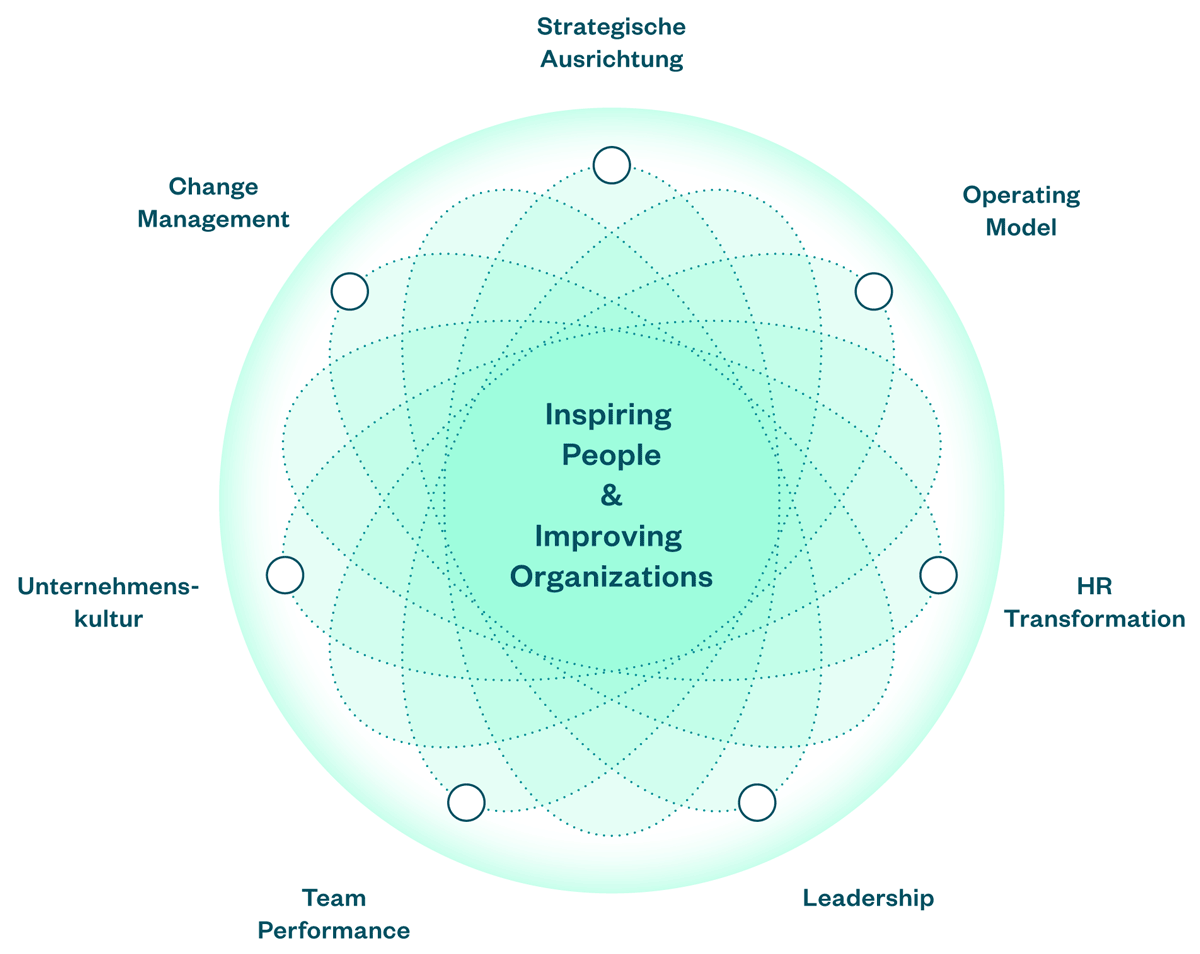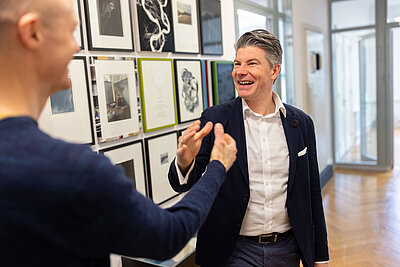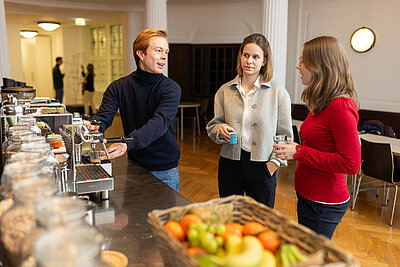
Our holistic approach
If people want to achieve big goals, they need to organise themselves. Organisations have a formal component which regulates the cooperation of many people. At the same time, organisations also have a human dimension; they are a social space for individuals.
Organisations are relevant - they determine whether strategic goals become reality (or not). The quality of formal regulations is an obvious factor. As social contexts, organisations shape employees' experience of work and effectiveness - and thus produce commitment, loyalty, growth and motivation (or withdrawal and indifference).
Inspired employees are therefore an important prerequisite for better organisations. The market success and employee success of organisations are closely interrelated and mutually reinforcing.

Success factors of excellent organisations
In order to unlock the full potential of organisations, it is necessary to understand their formal and human sides as complementary rather than as opposites. This means thinking ahead and shaping change together with the organisation. As a hidden champion, we see ourselves precisely between these positions. This is how we think about excellent organisations in detail:

Collaboration on complex tasks requires clear rules and their acceptance by employees.

In order to manage larger tasks, people need structures that give them the freedom to achieve common goals.

Companies with effective leadership are more successful on the market because leadership aligns everyone's actions with the organisation's goals.

High-performing teams require systematic preparation and continuous reflection.

In addition to a clear direction and structure, the right incentives and empowerment for employees are essential.

An environment characterised by openness, respect and mutual understanding boosts innovation, commitment and productivity.

In a world that is constantly changing, the ability to adapt and embrace change is crucial.






